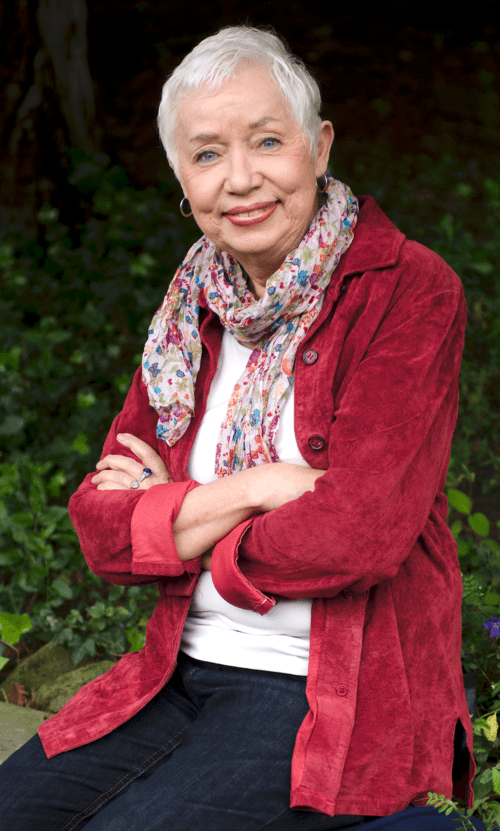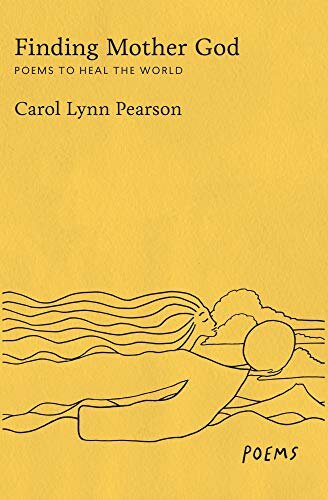“finding mother god: poems to heal the world”— a conversation with carol lynn pearson

Photo by Pixabay on Pexels.com
By Brittany Sweeney-Lawson
I grew up listening to two Mormon musicals most Sundays: Saturday’s Warrior and My Turn on Earth, the latter of which was written by the prolific Carol Lynn Pearson. My Turn on Earth has some real earworms, and before I began writing this, I cued up the album on YouTube for inspiration. Turns out, years later, I’m impressed by how many lyrics I still remember.
More impressive still is that as I listened, I was struck by a powerful realization, made all-the-more poignant by its subtlety. Woven throughout the tapestry of music was the presence of a character who, while central to the structure of Latter-Day Saint belief, is almost entirely absent from the traditional narrative—the Eternal Mother. Not only is she acknowledged in Carol Lynn’s work… she speaks ! And somehow, in spite of the fact that other Mormon media I engaged with in my youth rather conspicuously featured her absence, it felt completely natural to feel her presence as presented in My Turn on Earth.
As it turns out, this was no accident. Since her teenage years, Carol Lynn could never square why all around her, men seemed to be the ones in charge of everything, and she wondered, “in all the leadership, where are the women?” This question precipitated a quest that has spanned over half a century, with Carol Lynn circling back time and again to the motif of the missing matrilineal link, the godly motherly figure whose visage we catch glimpses of across time, culture, and religion, yet has somehow, for the most part, been systematically erased in each.

“I played in a one-woman play [Mother Wove the Morning] of me searching for the female side of God,” she shares. “I thought I’d done everything I was supposed to do there, but to my surprise, two years ago, I picked up a notebook. I hadn’t written poetry in a decade,” she admits. But it was clear to her that the motherless void remained “gigantic, yawning, and huge,” and decided she wanted to continue to do her part to fill it.
The first part of Carol Lynn’s title for her latest collection of poems shows her determination to rectify the issue. She certainly looks—and finds—Mother Goddess in every nook and cranny, in every breath, thought, and syllable. The poems have a way of bringing order to the order-less, or as one of her first poems describes it as, “A Motherless House.” Carol Lynn points out that “if our own mother went missing from our home, we’d call the police and inform them that something criminal had happened. But [the erasure of mother] happened so long ago, we got used to it, which in and of itself is criminal.”
There is no attempt in Carol Lynn’s latest work to hide the frustration, disbelief, and hurt about the complacency with the erasure of a half of what is supposed to be a whole. While reading Finding Mother God: Poems to Heal the World in preparation for interviewing Carol Lynn, the constant that shone through was the obvious, unavoidable consequences of such flippant disregard. And how else, her poems ask, should any of us feel about living in an off-balance, unhealthy world? “Our civilization, church, society… everywhere is not entirely whole,” Carol Lynn states. “Our concept of God is not whole right now. We need the woman to bring wholeness and holiness.”

Which is why she believes, as the second part of her title boldly indicates, her poems can act as a healing balm. “I think most people would think we’re really missing something by not having a deity of male and femaleness together… LDS people are very hungry to have this subject elaborated on,” believes Carol Lynn. She is quick to mention she didn’t only write the poems for an LDS audience. “I think it’s pretty myopic to just look at what the LDS think of the general divine,” she contends. “I hope people who have left religion as well feel a kinship with the feminine principle. There’s hopefully something that can reach everyone.”
That reach will also hopefully extend to the top tiers of LDS leadership, which, like when Carol Lynn was a young girl, is still composed almost entirely of men. While she acknowledges it would take heavy lifting for the Church to really dig down to figure out why we are where we are, with merely giving a nod to the term “Heavenly Parents” seen as sufficiently satisfactory and informative, she believes expanding our knowledge base on this matter should be a top priority. Her goal is to make sure the apostles and First Presidency all have a copy of her poetry book in their hands. “Some of them will read, but even if they don’t, they’ll see people are talking about this,” she says.
When it comes right down to it, however, open acknowledgment and access to a mother divine is a big picture topic, bigger than any one leader or person. Carol Lynn reminds, “we need a lot of people to join the conversation.” Her hope is everyone who reads her work can use it to enhance their own relationship with a spiritual mother who, in her experience, is anywhere visible and everywhere needed.
In one of my favorite poems in the collection, “Like Mother, Like Daughter,” I’m reminded of why a loving, omnipotent mother-in-theory is not and will never be sufficient— because to learn of Her is to drink from the well and cease to thirst. To follow her is to partake as women in the rightful share of a divine heritage. And to know Her in all Her myriad forms is to better know ourselves and our unending potential.
Like Mother, Like Daughter
Because She is beauty
I must be beautiful.
Because She is God
I must be good.
Because she is everlasting
I will continue tomorrow and the day
after the day after the days after that.
Because She loves me
I must be loveable.
And when I pass a mirror
when I receive a smile
I recall that way back in the garden
or the heaven
I was made in Her image:
Truly in Her divine
and breathtaking
image.
Here. In my eyes. Look.
See me.
See Her.
*Copies of “Finding Mother God: Poems to Heal the World” are available at Carol Lynn’s personal website.

Leave a comment